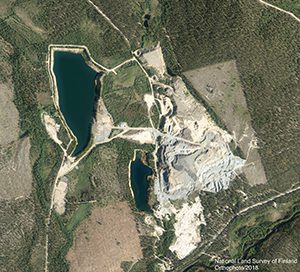
Local stakeholders need more information than is currently available to them on the impacts of former mining activities on ground water and surface water, potential soil contamination, and the safety of natural products, a new study from Finland seems to show. The majority of the respondents generally regarded post-mining sites as unpleasant places that are in need of better reclamation and landscaping measures.
“Our study shows that more attention should be paid to post-mining land use planning. This is important especially when we take into consideration the fact that the demand for various minerals is growing globally and the average size of mining projects has generally increased,” said researcher Sonja Kivinen from the University of Eastern Finland.
The study was carried out in collaboration between the University of Eastern Finland and the Finnish Environment Institute. The researchers used a public participation geographic information system approach to analyse local residents’ and visitors’ conceptions of two post-mining areas in northern Finland. Mine reopening is currently planned in these areas. Spatially explicit data on values, opinions and knowledge needs was collected with an online map-based survey tool.
Opinions on the planned mine reopening project were strongly divided among the respondents, especially with regard to whether a large open-pit mine and nature-based tourism can coexist in the same region. The study shows that observed environmental impacts as well as uncertainties and knowledge gaps related to these impacts can affect local stakeholders’ land use in areas surrounding old mines.
“The shadow cast by old mines is long. The impacts on local land use are experienced far outside the mining sites and long after their closure. When old mining sites are not reclaimed and landscaped properly, this has an effect on landscape values, natural values and possibilities for post-mining land use,” Kivinen says.
According to the researchers, areas surrounding post-mining sites contain a wide diversity of positive experiences and values relating to the landscape, recreation and natural products. In the two areas studied in northern Finland, environmental impacts were highlighted as a cause for concern.
New and reopened mines are usually larger than before, and this places increasing emphasis on the significance of reclamation and post-mining land use planning.
“Better understanding of different stakeholders’ values, opinions and knowledge needs could significantly improve post-mining land use planning and help in retaining different types of activities in their surrounding areas.”
Details of the research article:
Kivinen, S.; Vartiainen, K.; Kumpula, T. People and Post-Mining Environments: PPGIS Mapping of Landscape Values, Knowledge Needs, and Future Perspectives in Northern Finland. Land 2018, 7, 151. https://doi.org/10.3390/land7040151







